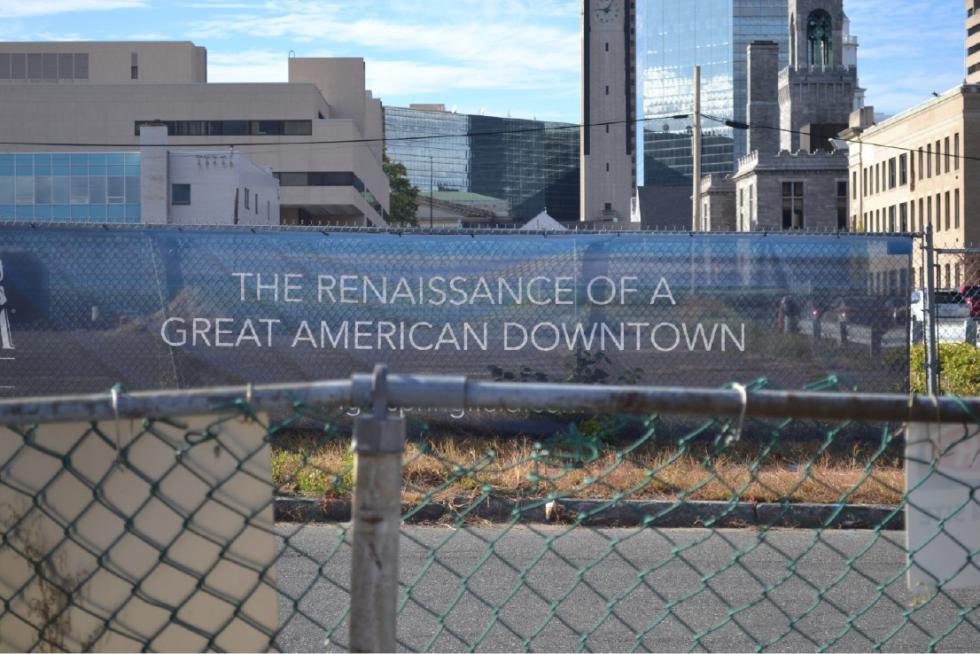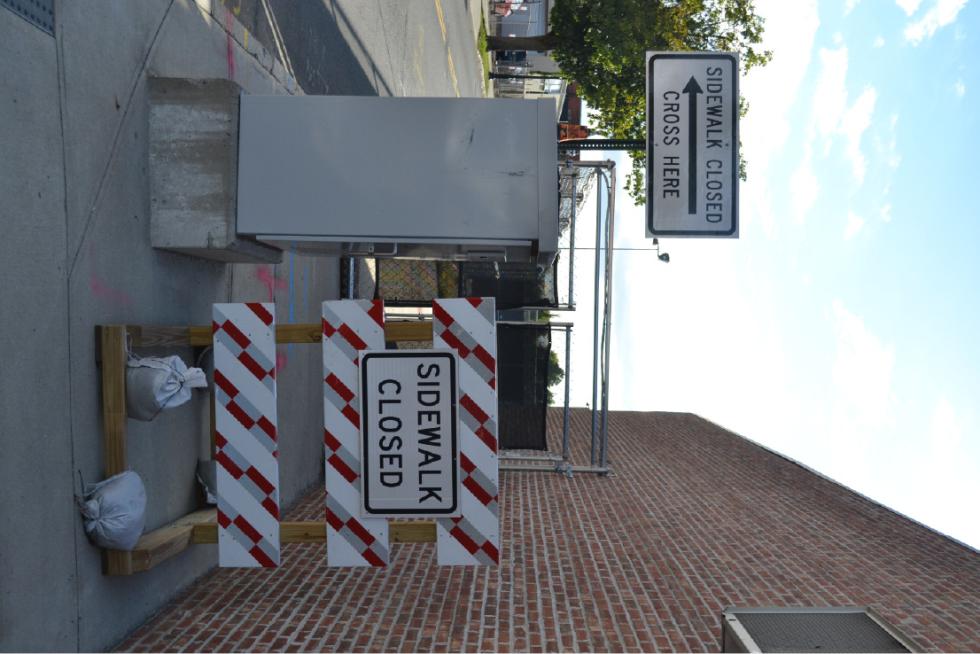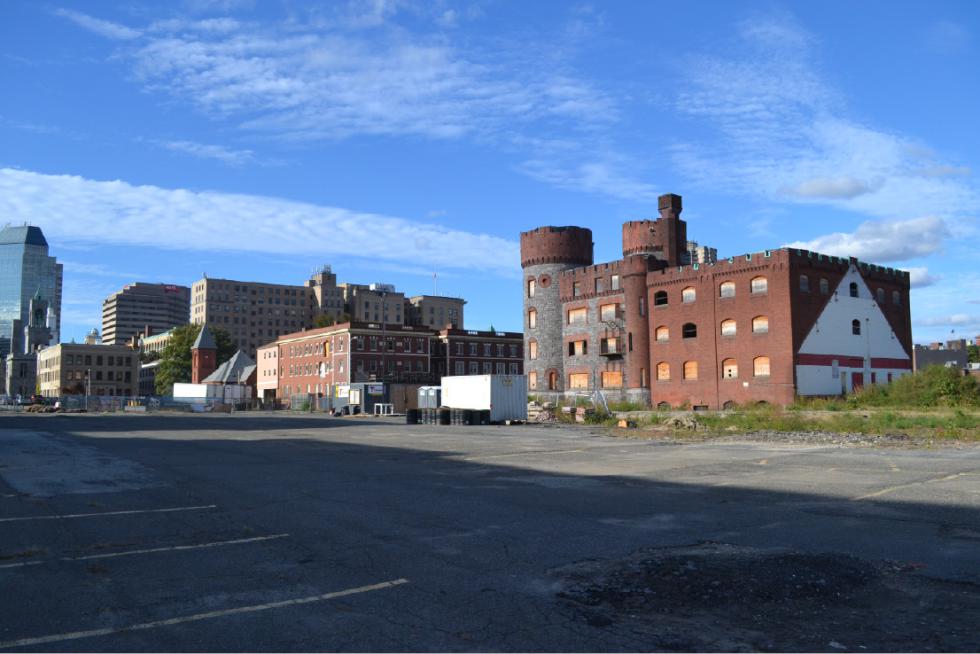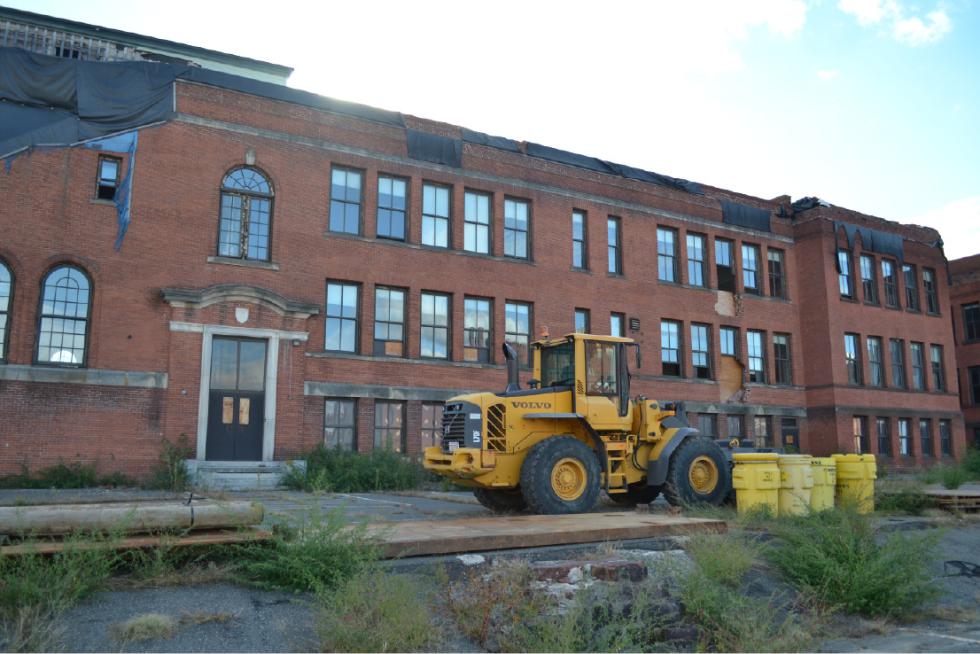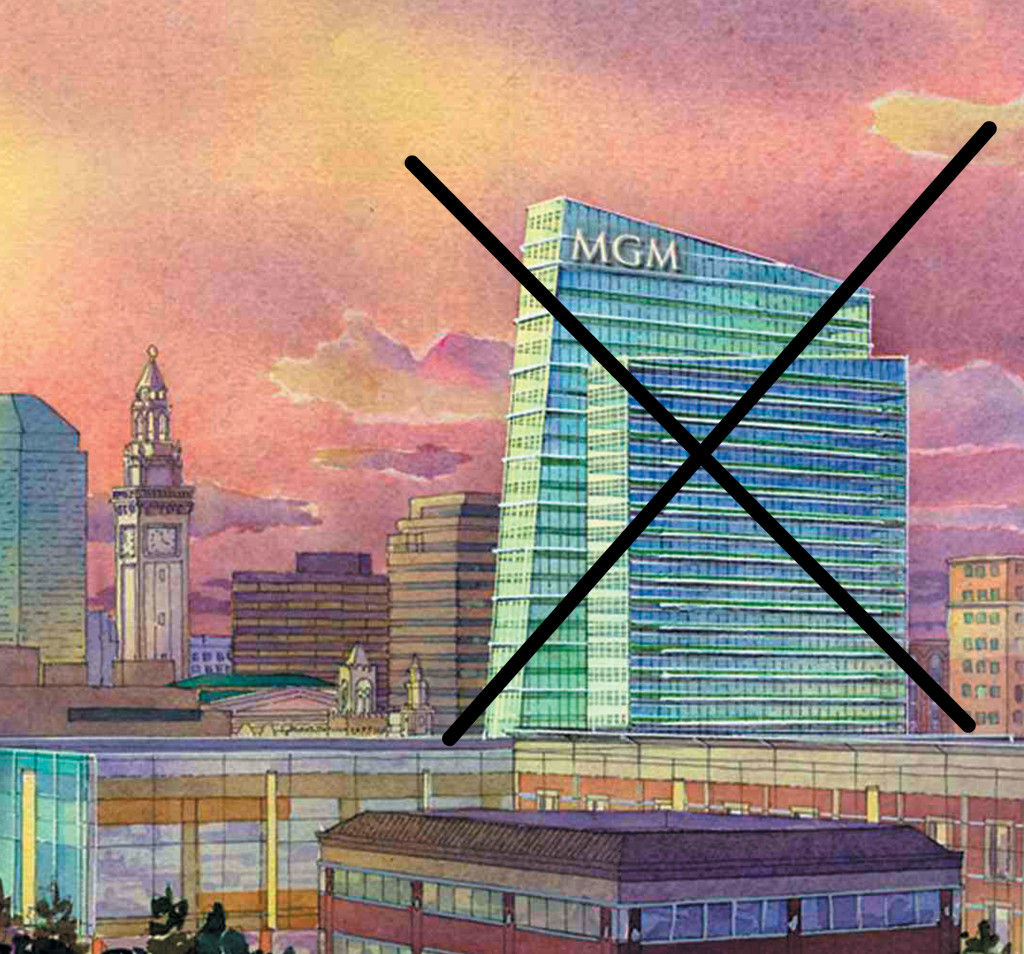In October 2007, MGM announced plans to build a $5 billion casino resort in Atlantic City, New Jersey. In addition to slots, tables, and hotel rooms, renderings of the 60-acre complex boasted restaurants, clubs, and retail space. Among 11 other nearby casinos, MGM Grand Atlantic City was to become the largest. It seemed the economic odds were starting to improve for Atlantic City, which faced stiff new competition for gambling dollars across state lines.
But 12 months later, faced with an onrushing recession, MGM canceled construction. The casino was not to be, and Atlantic City’s luck hasn’t improved much since then – four casinos closed there in 2014.
Was that a different time in the life of MGM? To be fair, it was. As the economy improved, CEO James Murren guided the company through a large-scale reorganization to save costs. And in 2013, MGM began to re-examine the possibility of investing in Atlantic City. But that specter of scrapped plans is difficult to dismiss — especially when those plans were to pump billions into the New Jersey economy.
Is Springfield in for the same treatment? Following announcements that MGM Springfield’s opening date will be pushed back to 2018 (not to mention some huge overhauls to the casino’s design) people are sniffing the air and wondering, in this unsure moment, whether they’re catching a whiff of bait and switch, or — possibly worse — cut and run.
After all, MGM Resorts International is the world’s second-largest casino company, and it invests locally only as a means of thriving globally. It pours millions into new ideas, and then — as Atlantic City learned — it re-evaluates. We know that corporate machines are engineered to grow profits. And it would be surprising if a company as savvy as MGM made an investment from which it could not walk away.
The promise
In a July 2013 referendum, the residents of Springfield voted in favor of a handsome casino proposal by MGM: an extensive redesign of the South End neighborhood that would offer retail, dining, and entertainment in addition to gambling. The plan’s centerpiece was a 25-story glass hotel tower, visible to travelers on Interstate 91 and a symbol of a troubled city’s promising future.
That tower is no more. On Sept. 22, the company announced plans to rethink the hotel as a six-story building along Main Street, with the same number of beds, but no glass facade. Two days later, at a hearing with the Massachusetts Gaming Commission, MGM Springfield President Michael Mathis blamed this and other major revisions — including the off-site relocation of 52 market-rate apartments and the scaling-back of a new public-access parking garage — on rising labor and construction costs.
The new plan surprised the commissioners. “I’m a little troubled by this request,” said Commissioner Enrique Zuniga at the hearing. “A significant feature of this project — what you sold to this commission, this city, and this community — is now no longer there, and I’m worried about it.”
The Gaming Commission declined to state its support for the changes that day. MGM needs approval from the commission as well as from Mayor Domenic Sarno’s office and from the City Council. Approval from all bodies on such major changes is necessary, as stated in the host agreement. But before anyone signs off on the plans, the company must share the math behind its proposal — information that was not presented at the hearing. Mathis has promised to clarify the numbers once the cost review is complete. MGM officials have stated that full information will be available for review by mid-November.
So, Springfield will have to wait to see the evidence for the significant financial pressure to which Mathis said MGM was responding. For a project that is already 18 months delayed, this is frustrating news, and headlines about possible new competing casino facilities in northern Connecticut prompt speculation that MGM has delayed construction as a means of gauging the changing market.
More skin in the game
From interviews with Springfield residents and downtown business owners this week, we heard from a population eager to dispel the fear that MGM Springfield will go the way of MGM Grand Atlantic City. But until MGM makes their finances transparent, it is difficult to not worry that the company will pull out entirely — again.
When asked why the need for design change, MGM executives point to the state — and they’re not wrong. MassDOT’s Highway Department got off to a slow start in renovating the I-91 viaduct — a project MGM wants to see completed before the casino opens. That delay was bound to come with a price tag.
The proposed design changes came out of a six-to-eight week review of construction pricing that concluded in the first half of August, said MGM spokesperson Carole Brennan. “Our original 2012 budget of $800 million did have some escalation built into it, but it assumed a 2016 opening,” she said. “The statewide referendum, as well as coordination with the I-91 construction schedule, have resulted in an additional 18 months of extended schedule that were not initially factored in.”
When asked whether MGM can realistically promise no further design changes, Brennan said that designs must necessarily change as such large projects evolve, but that “we do not anticipate there will be any further material changes.” (Her use of the legal term “material” refers to changes that would fundamentally alter the original terms of the agreement.)
“A project this large and complex does not have any single date where design needs to be completed,” she said, but added that MGM is hopeful that the design change is approved by all parties by the end of 2015.
While all those numbers are being crunched, Mathis offered some reassurance of the company’s commitment to the city. The redesign will not affect the number of hotel rooms, the number of jobs created, nor MGM’s minimum financial commitment of $800 million. And in a visit to the city on Oct. 5, MGM President Bill Hornbuckle stated that “we have poured a quarter of a billion dollars into this effort … We have not gone anywhere, we will not go anywhere, and we will be here to the end of this.”
City Council President Michael Fenton told the Advocate that while he has no doubts that MGM is committed to Springfield and vice versa, he’s concerned about the proposal to eliminate the tower, and he wants to make sure MGM holds up its end of the bargain.
“I have received dozens and dozens of letters from people all over Springfield, many of whom were supporters of MGM in the referendum,” said Fenton, “who feel that changing the proposal as suggested without additional benefits to the city of Springfield is unfair to our expectations as a city.”
During the week following the hearing, Fenton attempted to secure enough votes to add a non-binding referendum question to the Nov. 3 municipal election ballot to ask the public whether they support the new designs. The clock ran out on that opportunity on Sept. 30 when the Election Commissioner’s office closed at 5 p.m. — one hour before Fenton had an opportunity to bring the matter before city council (Fenton thought the deadline was midnight). He has since stated a desire to appeal to the gaming commission for a direct order to allow the referendum.
Fenton said that most people who are fine with the elimination of the tower don’t really understand the change.
“It’s not just about taking the tower and laying it on its side, like people are saying,” he said. “This is more like taking the tower, eliminating it altogether, and in its place putting a deli and a coffee shop.”
Fenton called the handling of the redesign announcement by the mayor’s office and MGM “a complete disaster.” There were discrepancies between the explanation Sarno gave to the public (it’s about smarter neighborhood planning) and the one Mathis gave (it’s about costs). Fenton said that he has met with MGM officials and they have been proactive about recognizing a need to put more skin in the game. When asked whether MGM could throw down some dollars to help offset the diminished parking along Main Street caused by two blocks of jersey barriers, Fenton said that it could, but it wouldn’t be nearly enough.
“To be clear, MGM is saving upwards of $100 million on the design,” Fenton said. “That’s nowhere near what they need to do to offset the elimination of the tower.”
In meetings with MGM, Fenton said he’s proposed housing upgrades that square things off, such as upping the 52-unit commitment and incorporating condos into the casino footprint. He said the market-rate units will appeal to young professionals, but that same target market also leans toward ownership.
“From there we can have further discussions,” Fenton said. “I would just like to point out that we as a city remain fully committed to MGM Springfield and they remain fully committed to us, but I want to make sure we do it right and in a way that’s beneficial to Springfield.”
Get those shovels going
Delays are discouraging, but they happen all the time, said Chris Russell, the executive director of the Springfield Business Improvement District. “And I think that opening before the [I-91] viaduct construction is complete would really hurt them.”
Russell said that the tower design featured in MGM’s promotional images over the past few years were never to be considered “final plans,” explaining that “the tower looked great as a what-if vision, but this is a multi-million dollar planning process, and final designs were on hold until the statewide referendum was passed. Since then, they can move full-steam ahead.”
He added that he is happy to see the hotel spread out along Main Street, as opposed to “creating another silo” that directs foot traffic from the hotel straight into the casino. “They’ve really integrated into the fabric of downtown,” he said. “I love the new design, personally.”
Jay Minkarah, president of the nonprofit DevelopSpringfield, is hopeful about the “spillover” potential for business along Main Street as a result of the hotel redesign. He is also excited by MGM’s announcement that its market-rate housing will move from within the casino’s footprint to the former School Department at 195 State St., a historic building that has long sat vacant.
“It’s very natural for people to be concerned and skeptical,” he said. “I certainly felt that way when I heard of the changes. But as long as the number of gaming tables, hotel rooms, and jobs doesn’t change — along with their commitment to program events at the MassMutual Center, Symphony Hall, and CityStage — I will be happy. I think design changes that affect the look and feel, but not the core function, are in a different category.”
So, no fears that MGM will pull out completely in the coming months?
“Of course that’s come up, absolutely,” Minkarah said. “That reaction is to be expected. But I think people who feel that way have mostly been skeptical all along. I have been in the other camp, so naturally I’m looking at it through that lens.”
Mayoral candidate Sal Circosta is less optimistic. He offered his thoughts while walking down Main Street past the casino construction site, which for now stands empty of activity.
“MGM will point at the money they’ve invested as proof that they’re committed, but I’ll be impressed when I see real shovels in the ground, not ceremonial shovels,” he said.
What about the prospect of a full withdrawal?
“Absolutely that’s possible,” he said. “I don’t want to say the sky is falling, but from an intelligent business perspective, we need to look at this downscaling and spreading out as a possible exit move on their end. We should be extremely concerned about that.”
The delays and design changes have put the project on a “slippery slope,” he said. “This is a multi-billion dollar company. This isn’t their first rodeo. They’re playing a game. And I think that right now, politicians have become so desperate for success that they’re going to go with the flow. Whatever MGM wants, MGM will get.”
Circosta voted in support of the MGM proposal early on, and he was satisfied with the project up until the delays set in and the redesigns surfaced. “MGM isn’t the United Way,” he said. “Their job is to make money, and they’ll squeeze us for every penny they can.”
“And I don’t see where City Hall has the right or authority to supercede what the people have voted for,” he added. “The thought that the mayor’s office didn’t do everything it could to allow for a referendum question on this is disturbing.”
Mayor Sarno’s office did not respond to calls for comment.
Roll of the dice
Only time will tell how thoroughly MGM stays committed to Springfield, and what effects the complex will have on the city’s nightlife, tourism, crime rate, and economic recovery. As of 2015, predictions are surprisingly hard to make with much accuracy, said Rachel Volberg, a UMass Amherst research associate professor who specializes in the study of gambling.
“Very little research has ever been done to monitor the impacts of this kind of gambling development from start to finish,” Volberg said. “We have anecdotal evidence from other urban casinos in states like Louisiana, Michigan, Ohio, or Kansas, but those are very different states, and conditions have differed from one city to the next.”
Volberg is the principal investigator on a multi-year project, funded through the Massachusetts Expanded Gaming Act, that examines the social, health, economic, and fiscal impacts of casino gambling as it rolls out across the state, complete with 10-year look-backs. Their work in Springfield is only just beginning, she said. “We have a clean snapshot of the state before any casino activity started, and we’ll just have to see how it rolls out over time.”
Business owners along Main Street are all too aware of the time factor. Those two blocks of jersey barriers that Michael Fenton has been protesting have been bad for business at McCaffrey’s Pub, which has reported a 30 percent decrease in business in recent weeks. In mid-September, the nearby D’Asti Deli closed its doors, with owner Robert D’Agostino citing a similar drop in foot traffic.
Nadim’s Mediterranean Restaurant and Grill is one block farther down Main Street. Its owner Nadim Kashouh said he was “disappointed” to see the glass tower eliminated from the designs, but that right now, he is more concerned about the delays.
“I understand that they don’t want to open during the viaduct construction,” he said, “but let’s get the ball rolling. It’s not moving fast enough. This is New England — we’re about to lose construction for the winter.”
Kashouh was fervently opposed to the possibility of a referendum question on the November ballot. “Definitely not — enough questions,” he said. “Look, I’m not a gambler. But I moved here 15 years ago, and for the last 15 years MGM has been the only good thing to happen to Springfield.”
Andy Yee, a managing partner at the Student Prince Cafe and Fort Dining Room, doesn’t believe that MGM would ever pull a retreat. “They’re invested here. It wouldn’t be good business,” he said.
Still, he added, perception matters. “Changing from a glass tower to a six-story building raises a lot of eyebrows. I hear chatter and pushback. But these decisions are made very carefully. You can put a plan on paper, but sometimes it’s not conducive to follow it. Plans are made to change.”
Yee speaks as a business executive. Over at Mom and Rico’s, the South End Italian market, owner Rico Daniele speaks as a Springfield native impatient for better times.
“Who cares?” said Daniele of the glass tower. “What’s the difference? Just do something! Let’s get those shovels going.”
Daniele says he has seen nothing new or exciting come to Springfield in 30 years, and it’s time the city saw some action. Perhaps, he added, the design changes will actually bring about more foot traffic.
Does Daniele worry that MGM will eventually back out on its investment here? As usual, he had a quick answer: “If they don’t do the right thing, my mom’ll chase them out of here with a broom.”•
Contact Hunter Styles at hstyles@valleyadvocate.com and Amanda Drane at adrane@ valleyadvocate.com

